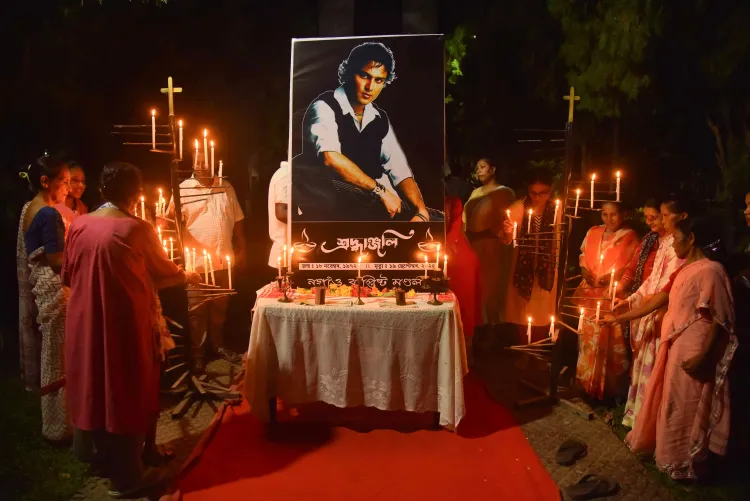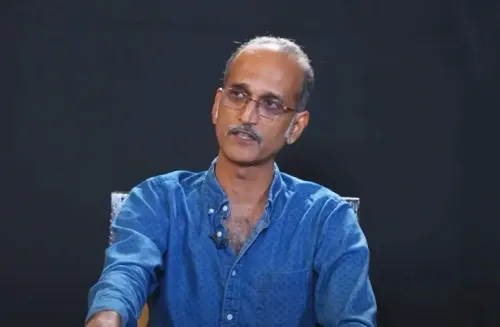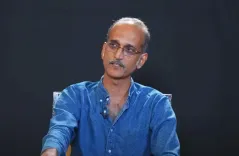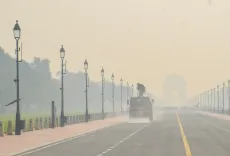What Led to Zubeen Garg's Death? Assam SIT to Confer with Singapore Police

Synopsis
Key Takeaways
- Special Investigation Team (SIT) is actively pursuing leads in Zubeen Garg's death.
- Meeting with Singapore Police is aimed at obtaining crucial evidence.
- Protests have heightened tensions in Assam, showcasing public outrage.
- Legal measures have been enacted to prevent further unrest.
- Community calls for accountability and justice continue to grow.
Guwahati, Oct 21 (NationPress) The Special Investigation Team (SIT), which is investigating the tragic passing of Assam's beloved cultural figure Zubeen Garg, is scheduled to meet with the Singapore Police Forces on Tuesday to gather information about the singer's final moments while in Singapore.
Garg tragically passed away on September 19 while aboard a yacht with members of the Assam Association in Singapore. He was accompanied by his manager Siddharth Sharma, bandmates Shekharjyoti Goswami, Amritprabha Mahanta, and his cousin Sandipan Garg. All of these individuals, along with festival organizer Shyamkanu Mahanta, are currently in custody due to their alleged involvement in the singer's death.
CID Special DGP Munna Prasad Gupta and SP-rank officer Tarun Goel arrived in Singapore on Monday as part of the SIT investigating Garg's demise.
During their meeting with Singaporean authorities on Tuesday, the SIT is expected to request access to the CCTV footage from the hotel where Garg last stayed.
Recently, intense protests erupted outside the Baksa District Jail after the five individuals accused in the Zubeen Garg death case were brought to the facility under heavy police protection.
In response to the rising tensions, the district administration enacted prohibitory orders under Section 163 of the Bharatiya Nagarik Suraksha Sanhita (BNSS) to curtail further unrest.
The situation escalated when a furious crowd gathered outside the Baksa district jail, demanding the public appearance of two accused individuals: festival organizer Shyamkanu Mahanta and Zubeen Garg's manager Siddharth Sharma.
The protest turned violent, with demonstrators engaging in stone-pelting, injuring a female police officer, and damaging several vehicles in the police convoy. Security forces responded by deploying batons to disperse the crowd, resulting in multiple arrests for unlawful assembly.
District Magistrate Gautam Das quickly issued an order prohibiting all forms of public gatherings, rallies, demonstrations, and processions within a 500-metre radius of the Baksa jail.
The order also prohibited the carrying of weapons such as lathis, daggers, spears, and swords, as well as the throwing of stones or any flammable materials, including firecrackers.
This directive was put in place in light of concerns regarding a potential breach of public peace and tranquility, due to the unrest observed near the District Jail in Nikashi, Baksa, and warned of strict legal action for any violations.








